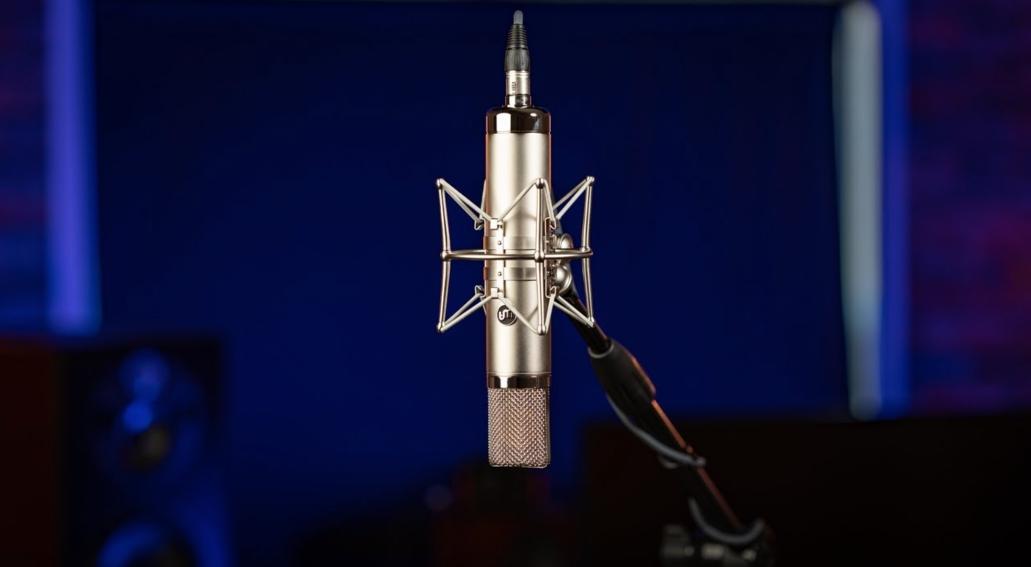Selecting the best microphone for recording vocals is a critical decision for any musician, producer, or audio engineer. The right mic can elevate a performance, capturing every nuance of the voice with clarity and warmth, while the wrong choice can leave recordings lacking depth and detail. Whether you’re laying down tracks in a professional studio, setting up a home recording environment, or enhancing your DJ set with live vocals, finding the microphone that complements the unique characteristics of the voice it captures is paramount. This guide aims to shed light on the top choices for vocal microphones, focusing on their features, performance, and how they fit into various recording scenarios.
The Best Mic for Recording Vocals: What to Choose?
Finding the top mic for vocal recording is a journey that intertwines technical precision with artistic expression, especially for DJs who blend beats with vocal performances. The six microphones highlighted offer a range of options that cater to the diverse needs of DJs, from live sets to studio recordings. Whether you prioritize durability, sound clarity, versatility, or all of the above, each microphone presents unique qualities that can significantly enhance your vocal tracks.
Audio Technica AT2020 – Good Voice Recording Microphone
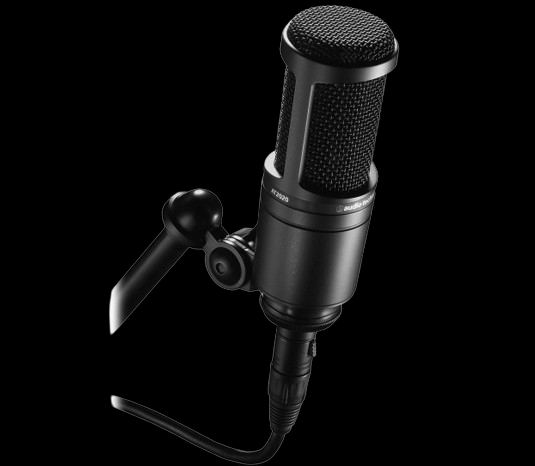
Pros:
- Outstanding audio quality
- Versatile performance
- Robust build quality
- Ease of use
Cons:
- Limited versatility in polar patterns
- Handling noise sensitivity
- Absence of onboard controls
The Audio Technica AT2020, renowned as the best budget vocal mic, boasts a custom-engineered diaphragm, ensuring crystal-clear, accurate audio capture. Ideal as a microphone for recording vocals, its precision extends to instruments and ambient sounds, encapsulating every detail. The cardioid polar pattern isolates sound effectively, a boon in settings with potential bleed-over, yet its singular pattern may limit the capture of broader soundscapes. User-friendly, the AT2020 requires minimal setup and is appealing to all proficiency levels. Despite its affordability and professional-grade sound quality, additional purchases like a shock mount are recommended to counter-handling noise and enhance stability. However, its simplicity means it lacks advanced features such as a pad switch or high-pass filter, potentially narrowing its adaptability in diverse recording situations.
AKG C414 XLII – Professional Microphone for Singing
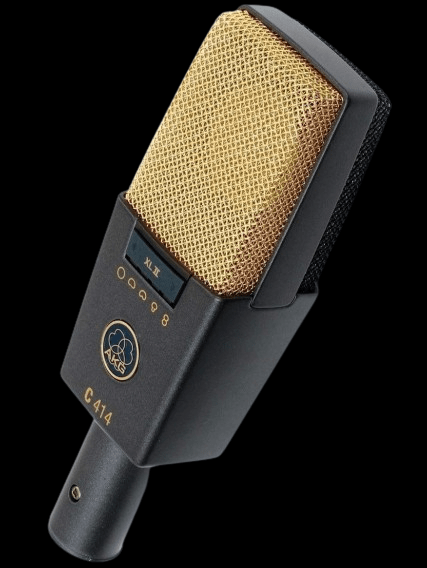
Pros:
- Versatile polar patterns
- High sound quality
- Robust design
- High SPL handling
- Overload warning
- Bass cut and attenuation options
Cons:
- Complexity for beginners
- Sensitivity to handling noise
- Weight and size
The AKG C414 XLII, celebrated as the best mic for singing, boasts nine polar patterns for unparalleled sound capture flexibility, perfect for various sound sources. Its exceptional audio clarity, enhanced by a presence boost, makes it ideal for detailing vocal subtleties and acoustic instrument richness. Durable construction ensures long-lasting performance, even in rigorous studio settings. This microphone excels in handling high sound pressure levels, ideal for robust instruments and energetic performances. Features like the peak hold LED, bass-cut filters, and attenuation pads provide meticulous control over recording quality. However, its sophisticated functionality might intimidate beginners, and its sensitivity to handling noise demands additional accessory investment. Also, keep in mind that the microphone’s notable weight and size could complicate setup, necessitating robust stands and mounts for optimal positioning.
Shure SM58 – Top Vocal Mic
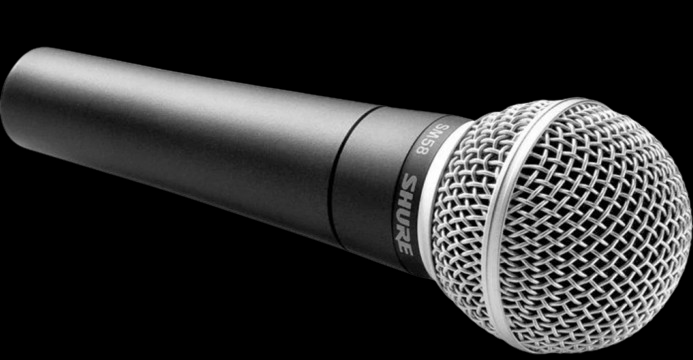
Pros:
- Legendary durability
- Exceptional vocal clarity
- Feedback resistance
- Affordable quality
- Universal compatibility
Cons:
- Limited frequency response
- Handling noise
- Unchanged design
- Wind and pop sensitivity
The Shure SM58, one of the most popular mics for a DJ set, boasts a robust build designed to endure the challenges of touring and frequent usage without losing its effectiveness. Its specialized frequency response accentuates vocals, delivering crisp, precise audio. The cardioid pattern excellently isolates sound, reducing background interference and feedback, making it a staple in professional audio gear. This microphone, celebrated for bringing studio-quality sound to a wide audience, fits seamlessly into various sound systems and DJ setups. However, its focused response might not fully capture every instrument’s essence. Handling noise could necessitate extra skills or gear, like shock mounts, for live shows. While lacking contemporary features, its timeless design remains a symbol of reliability. Additional accessories like windscreens or pop filters are recommended to prevent plosives and wind noise during performances.
Shure SM7B – Great Home Studio Mic
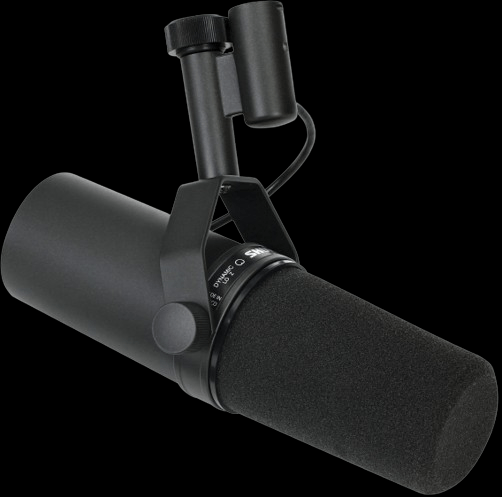
Pros:
- Superior sound quality
- Effective noise rejection
- Versatile applications
- Durable construction
- Minimal pop and breath noise
Cons:
- Requires significant gain
- Heavy and bulky
- Limited onboard features
The Shure SM7B, acclaimed as the best studio vocal mic and the best microphone for recording vocals at home, offers unparalleled audio fidelity. Its flat, wide-range frequency response captures every nuance, making it a top choice as a home recording microphone. The advanced pneumatic shock mount and internal air suspension significantly diminish electromagnetic interference and ambient noise, ensuring pristine recordings. Ideal for a spectrum of uses from podcasts to music, its durable construction is ready for rigorous studio use. A built-in pop filter elevates vocal clarity, eliminating the need for extra gear. However, achieving its full potential requires a high-quality preamp or gain booster, potentially increasing setup costs. Its heft demands a robust support system, and the absence of onboard adjustments like gain control may affect convenience for some users.
Aston Microphones Origin – High-Quality Studio Microphone
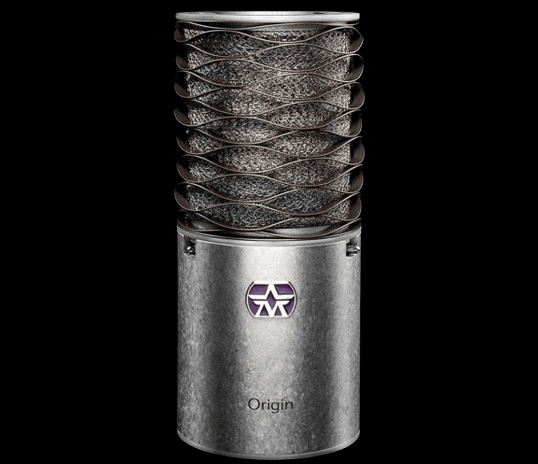
Pros:
- Exceptional sound quality
- Built-in pop filter
- Robust construction
- Versatile mounting
- Eco-friendly design
Cons:
- Requires phantom power
- Single polar pattern
- Sensitivity to ambient noise
- No pad or low-cut filters
The Aston Microphones Origin excels as the best microphone for music recording, merging clarity and warmth in vocal and instrument capture with its cardioid condenser and gold-evaporated capsule. Its innovative wave-form mesh head includes a mesh-knit pop filter, eliminating plosives seamlessly. Durability is assured by its stainless steel mesh head, which is designed for longevity. The inclusion of a built-in stand mount facilitates hassle-free setup across recording scenarios. Commitment to sustainability is evident in its eco-friendly packaging and design. However, reliance on 48V phantom power restricts compatibility with certain interfaces or mixers. While its cardioid pattern offers versatility, it may not cover all recording needs, especially in multi-directional settings. Additionally, its sensitivity might pick up ambient noise in less isolated spaces, and the absence of an attenuation pad or low-cut filter could reduce control over loud sources or unwanted bass frequencies.
Rode NT1 – Best Condenser Microphone for Vocals
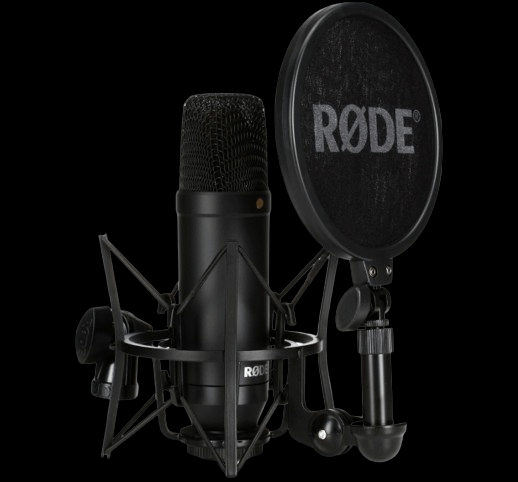
Pros:
- Ultra-low noise level
- Superior sound quality
- Robust build quality
- Shock mount and pop shield included
- 10-year warranty
Cons:
- Sensitive to sound placement
- Limited versatility
- Phantom power requirement
The Rode NT1 is heralded as the best mic for recording vocals, boasting an exceptionally low self-noise that ensures pristine audio capture. Its sound profile is both smooth and warm, with a crisp high-end, catering to diverse recording needs. The microphone’s durability is guaranteed by a robust, heavy-duty exterior, promising long-term reliability. Equipped with a premium Rycote shock mount and pop shield, it adeptly reduces vibrations and plosives, enhancing overall recording clarity. Rode’s confidence in the NT1 is underscored by a generous 10-year warranty provided upon product registration. Optimal sound capture requires careful mic placement, potentially extending setup times. While it shines in studio settings, its specific traits might not align with all live or field recording requirements. Additionally, its dependency on 48V phantom power could restrict compatibility with some recording DJ equipment.
What Are the Best Microphones for Singing?
When it comes to delivering an unforgettable DJ set or DJ performance, the clarity and quality of the vocals can significantly impact the overall experience. DJs, vocalists, and audio engineers often seek the best mic to capture the essence of a performance. Here, we explore the top microphones ideal for vocal recordings and the critical criteria to consider when choosing one.
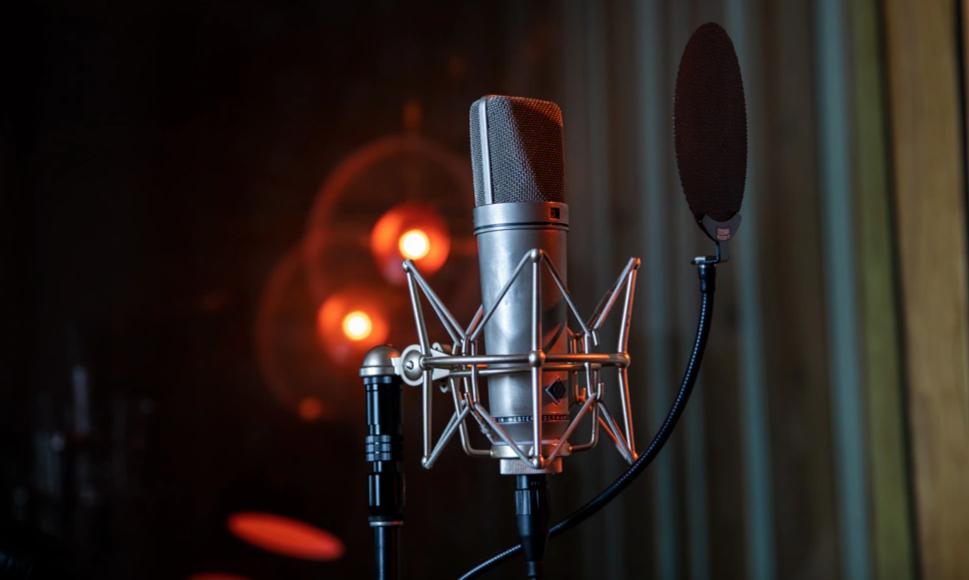
Understanding Vocal Recording Needs
Before diving into specific microphone recommendations, it’s essential to understand the main criteria for selecting a microphone that elevates vocal recordings. The choice should enhance the DJ set, ensuring every lyric and note reaches the audience with clarity and impact.
Dynamic vs. Condenser Microphones
Dynamic microphones are known for their durability and ability to handle high sound pressure levels, making them ideal for live DJ performances. They’re less sensitive to subtle nuances but excel in capturing powerful vocals without distortion.
Condenser microphones, on the other hand, offer a higher level of sensitivity and a wider frequency response. This makes them superb for studio recordings and environments where capturing the detailed texture of the vocals is paramount.
Polar Patterns: Finding the Right Direction
Microphones come with various polar patterns; cardioid is the most common for vocal applications. A cardioid microphone focuses on sound from the front, minimizing noise from the sides and back. This feature is crucial for DJs performing in environments with background noise or feedback concerns.
Conclusion
By considering the specific characteristics of your performance environment and vocal requirements, you can choose a mic that not only captures the essence of your voice but also elevates your DJ performance to new heights. Remember, the best microphone is the one that resonates with your personal style and meets the demands of your creative endeavors, ensuring every word and note is delivered with unparalleled clarity and impact.
Author
-
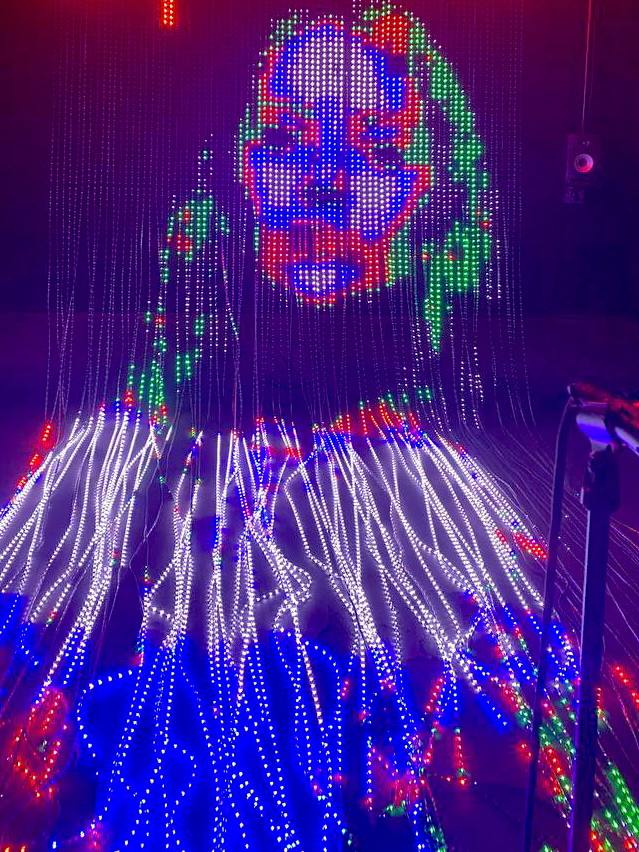
Hello, I’m Monica Blunder. As a fervent author and a DJ enthusiast, I’ve spent years immersed in the world of DJs and their music. My job here at EverybodyIsADJ.com is to keep you informed about the latest trends, tips, and news from the DJ community.

